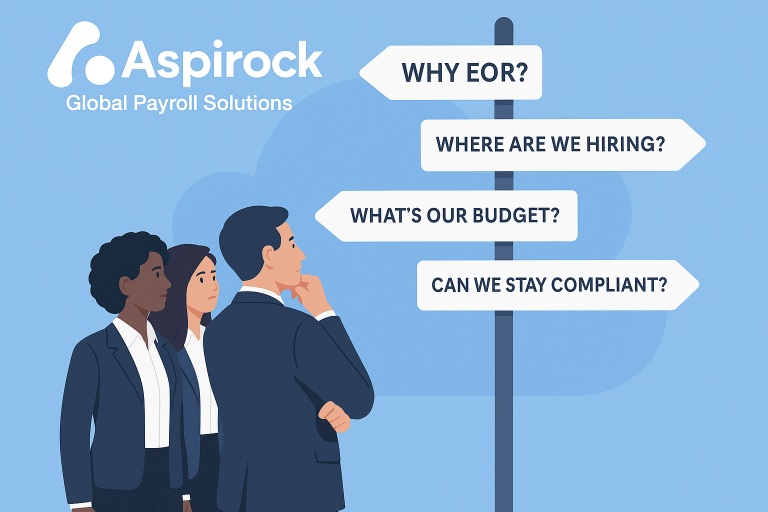Presuming you have come across this article due to a pre-existing interest in Employer of Record (EOR) services, you will probably already have some awareness of what an EOR does.
In summary, an EOR is a third-party organization that acts as the legal employer for a client organization’s workers – in effect, employing people on the client’s behalf.
Due to this legal status as the employer of such workers, the EOR handles various duties in relation to the employees, that the client organization would have otherwise taken on – such as the management of payroll and the payment of necessary taxes.
If, then, you are a decision-maker for an organization that is looking to take on workers who may be based in another jurisdiction – where employment regulations may differ markedly from what your company is familiar with – an EOR service could seemingly make a lot of sense as a source of global HR support.
However, your awareness of this should not be the start and end of the process of deciding whether committing to an EOR service would be the right choice for your organization.
So, we would also urge you to ask yourself certain vital questions, such as:
“What is my overarching goal in considering an EOR service?”
To elaborate on what we referenced above, many organizations initially contemplate the use of an EOR when they wish to hire internationally, without having to go through the expenditure and complexities of forming a legal entity.
However, your organization may have other – or additional – reasons for considering an EOR, such as a wish to outsource certain HR functions, or to lessen your payroll burden.
Taking time to clarify the drivers behind your firm’s interest in an EOR, will help determine whether taking this route would be well-aligned with your needs.
“Where am I looking to hire people from?”
Whatever territories your new workers will be situated in, you will naturally want to be sure that your chosen EOR operates in those jurisdictions and can therefore offer its services there.
EORs can vary in their global reach, so this is a crucial aspect to establish certainty about. Aspirock, for instance, has team members in Europe, the United States, and the United Arab Emirates (UAE), and provides EOR solutions and expertise across the European Union (EU), American, and Middle East and North Africa (MENA) regions.
“What budget do I have for EOR services?”
EORs typically operate on a model of charging per employee, and there might be certain setup fees or other minimum charges involved.
Again, then, you will need to clarify the costs situation with whatever EOR you have in mind. You will then be able to compare this to the expense you would incur if you handled all the EOR’s duties in-house, or if you set up a local entity in the country where your foreign workers will be based.
“How complex are my compliance requirements?”
You might be particularly likely to turn to an EOR if the territory from which you intend to hire workers has especially complicated labor laws or tax codes, or if employment regulations in the given jurisdiction don’t bear much resemblance to the situation in your company’s home country.
Regardless, you will want to be satisfied that your chosen EOR has the necessary in-depth know-how in that specific part of the world. So, you shouldn’t be afraid to ask careful and probing questions about the EOR’s local expertise and experience.
To begin asking these questions of Aspirock, and to discover the many ways in which our global HR support services can help lighten your organization’s load and contribute to its success, please contact us today.
